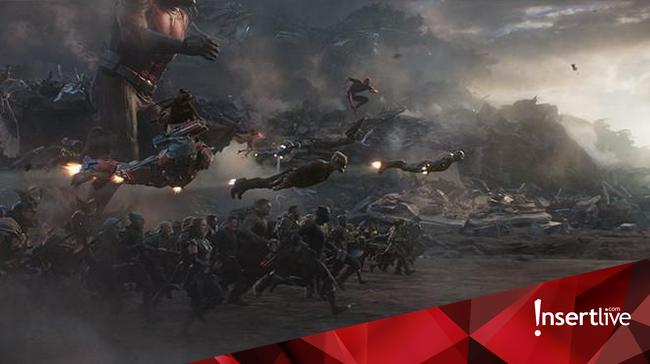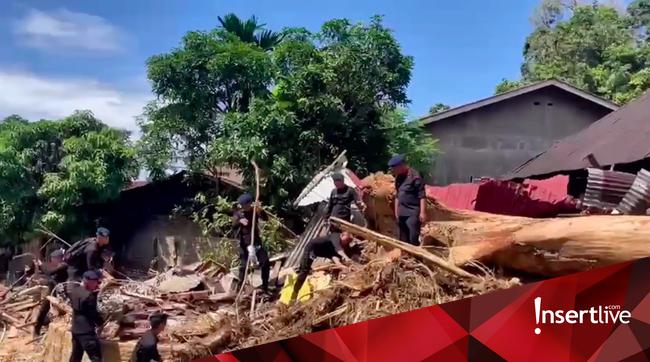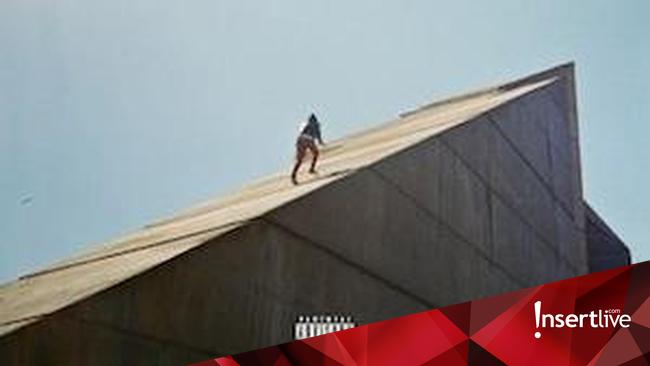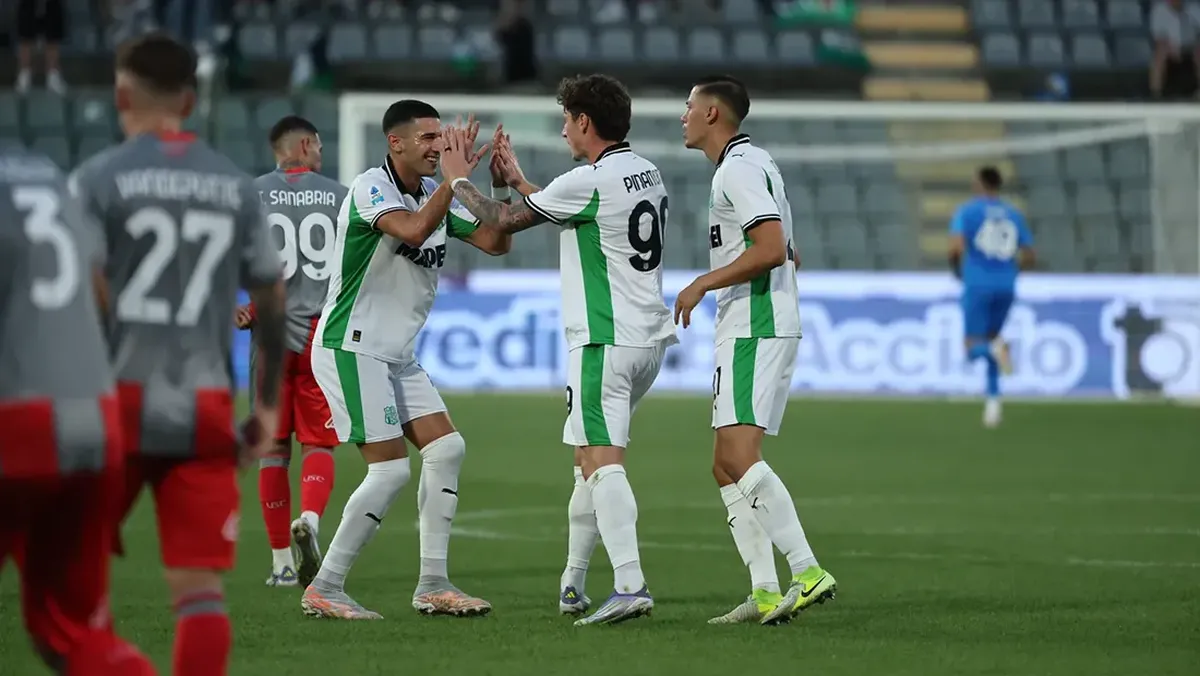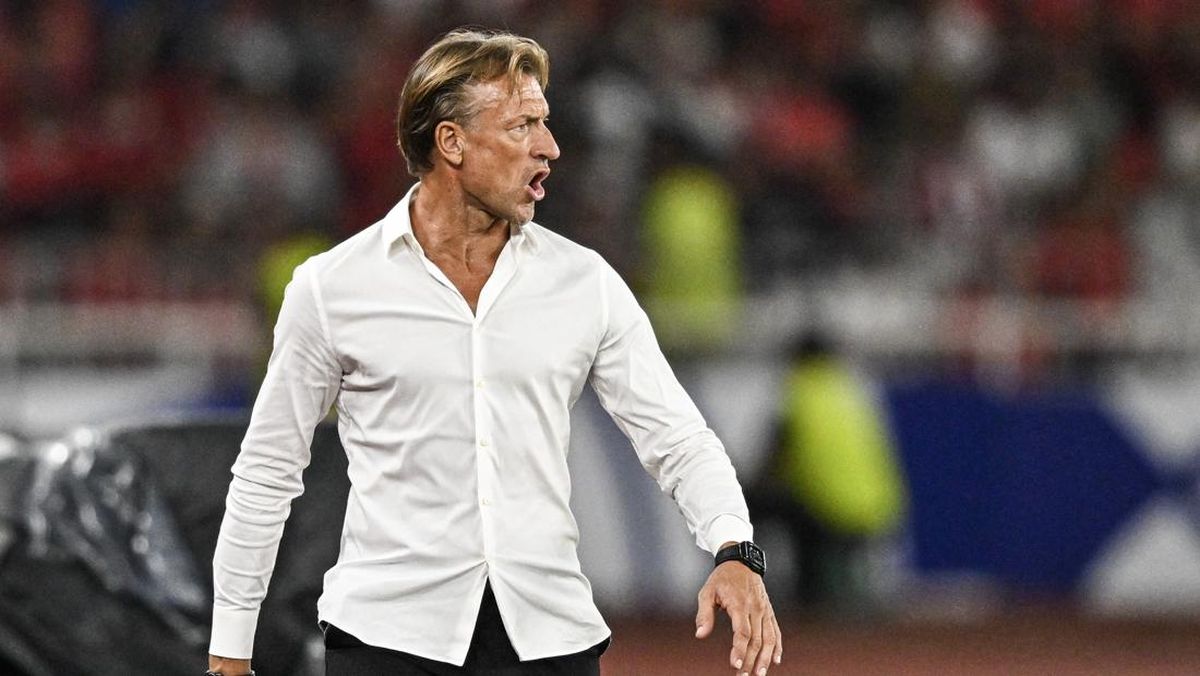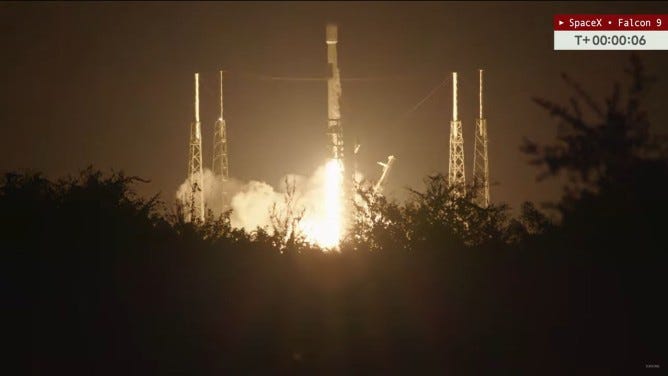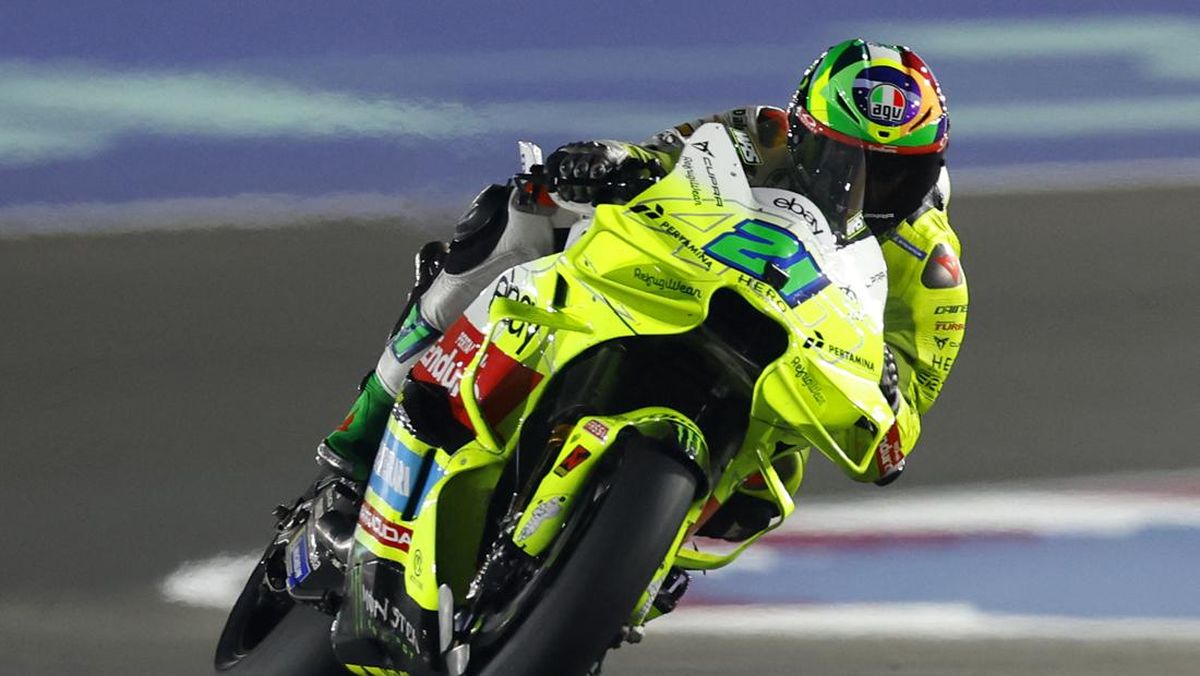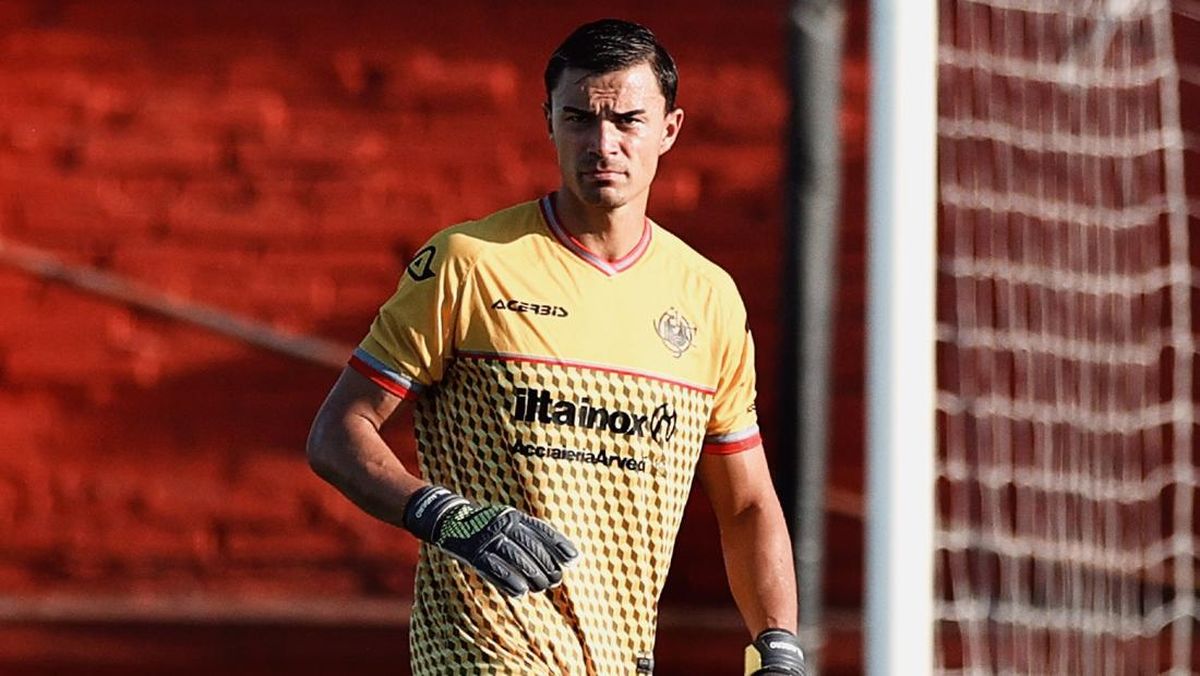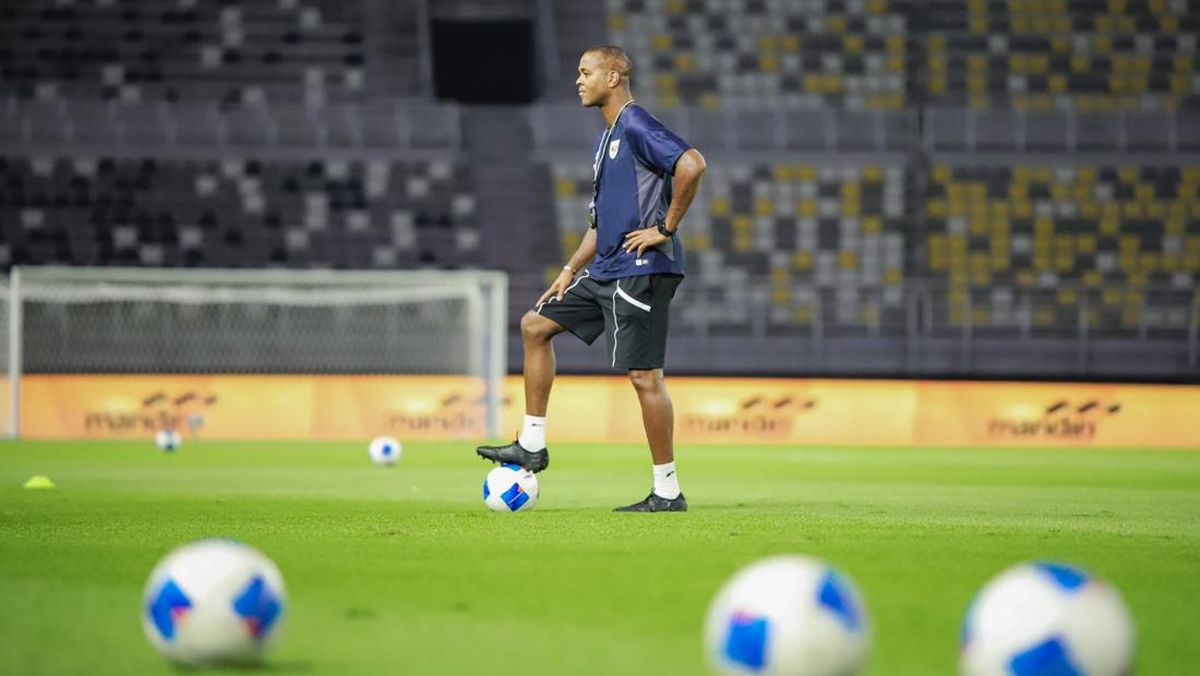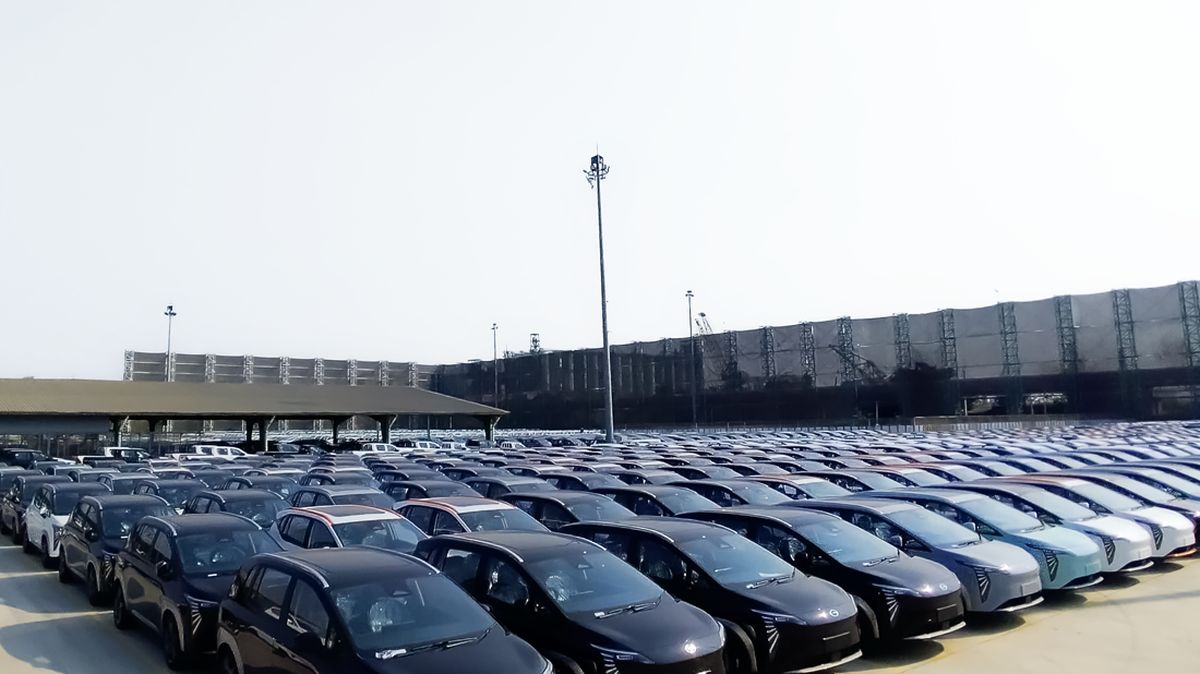
England, Wales, Scotland and Northern Ireland will discover who they will face in qualification for the 2027 Women's World Cup on Tuesday, 4 November.
The European qualifiers will run from February to December 2026, with 11 nations progressing directly through to the tournament in Brazil. Another place could also be available for a European team via the intercontinental play-offs.
A total of 32 nations will play at the 2027 edition, with the tournament set to expand to 48 teams for the 2031 World Cup.
Qualification is already under way in Asia and Africa.
England women reached the final of the 2023 Women's World Cup in Australia and New Zealand, losing 1-0 to Spain.
Scotland missed out on making that tournament, but made it to the 2019 edition in France. Wales and Northern Ireland have never qualified.
How does the draw work?
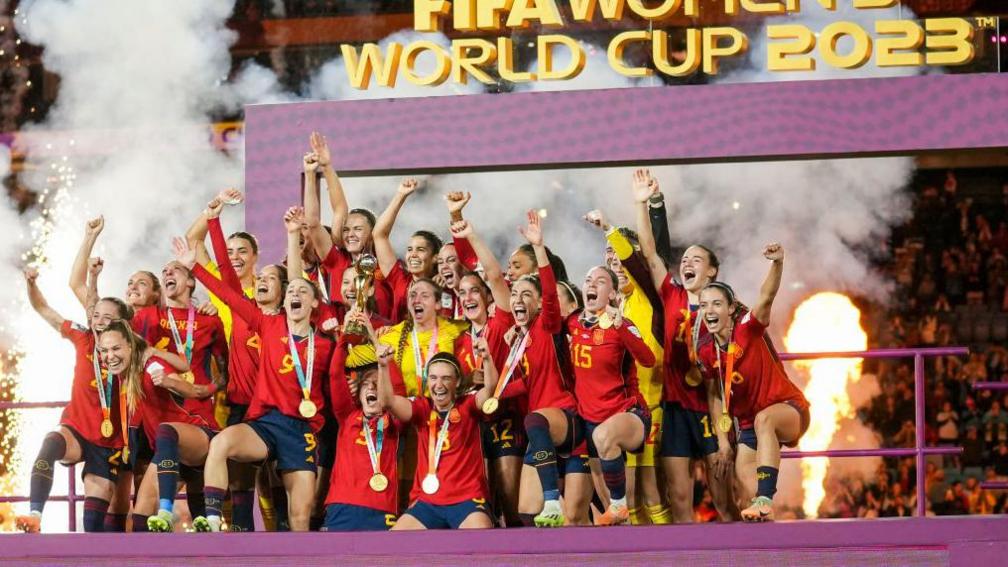 Image source, Getty Images
Image source, Getty Images
Spain beat England to win their first Women's World Cup in 2023
The European qualifiers are split into groups based on the results of the 2025 Women's Nations League, with 16 teams in League A, 16 teams in League B and 21 teams in League C.
The draw will put teams into groups of four or three (League C), with each nation playing one home match and one away match against the other countries in their group.
The winners of each League A group will automatically qualify for the World Cup, while the remaining seven direct spots, and a further berth in the inter-confederation play-offs, will be decided by two rounds of play-offs in October and November 2026.
England will be in League A, while Scotland and Wales will be in League B. Northern Ireland are yet to discover their league after making the Nations League play-offs. They will be in League A if they beat Iceland over two legs in October.
Who is in each league?
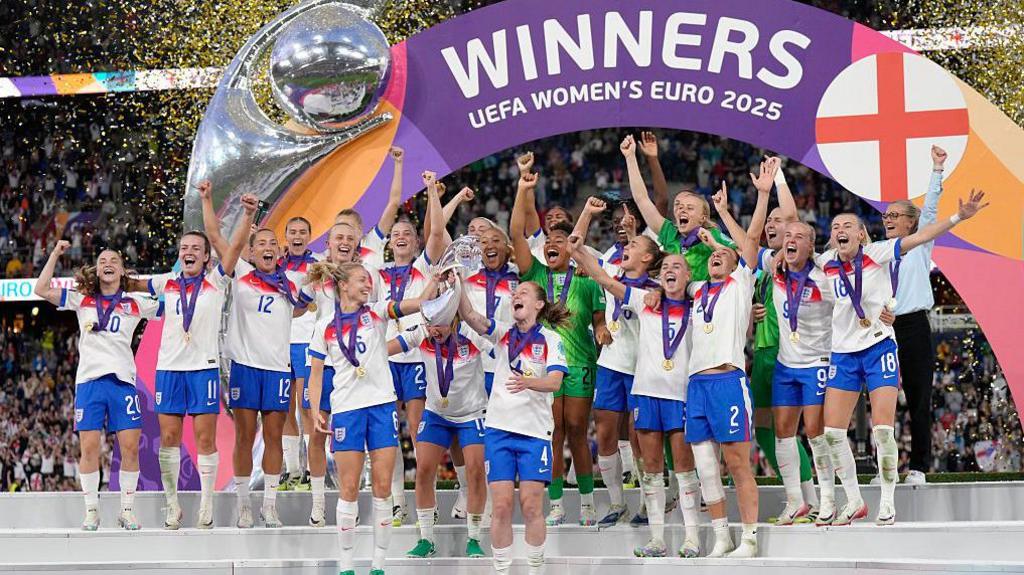 Image source, Getty Images
Image source, Getty Images
England have qualified for the Women's World Cup six times
League A:
France
Germany
Spain
Sweden
Netherlands
England
Italy
Norway
Poland
Slovenia
Serbia
Ukraine
League A or B play-offs:
Northern Ireland v Iceland
Finland v Denmark
Republic of Ireland v Belgium
Czech Republic v Austria
League B:
Portugal
Wales
Switzerland
Scotland
Slovakia
Israel
Luxembourg
Malta
Montenegro
Latvia
League B or C play-offs:
Cyprus v Albania
Kosovo v Turkey
League C:
Bosnia and Herzegovina
Hungary
Romania
Belarus
Croatia
Greece
Azerbaijan
Faroe Islands
Kazakhstan
Estonia
Lithuania
Armenia
Bulgaria
Moldova
North Macedonia
Georgia
Andorra
Liechtenstein
Gibraltar
How do the play-offs work?
The first play-off path involves the teams finishing second and third in their World Cup League A groups, who will play the six winners and two best-ranked runners-up in League C. The victors will advance to the second round of play-offs.
The other path involves the four fourth-placed League A teams and four League B group winners being drawn into eight ties against the teams finishing second and third in the League B groups.
The teams from League A and the League B group winners will be seeded and play the second legs at home, with the eight winners progressing to the second round of play-offs.
In the second round, eight fixtures take place with the seven best-ranked play-off winners - according to the European qualification league rankings - qualify directly for the World Cup. The lowest-ranked winning team progresses to the inter-continental play-offs, which takes place in Februrary 2027.
How many other nations qualify?
Brazil automatically qualify as hosts.
Asia: 6 (2 inter-confederation play-off spots)
Africa: 4 (2 inter-confederation play-off spots)
North, Central America and Caribbean: 4 (2 inter-confederation play-off spots)
South America: 3 (including hosts Brazil) (3 inter-confederation play-off spots)
Oceania: 1 (1 inter-confederation play-off spot)
Europe: 11 (1 inter-confederation play-off spot)
This article is the latest from BBC Sport's Ask Me Anything team.
What is Ask Me Anything?
Ask Me Anything is a service dedicated to answering your questions.
We want to reward your time by telling you things you do not know and reminding you of things you do.
The team will find out everything you need to know and be able to call upon a network of contacts including our experts and pundits.
We will be answering your questions from the heart of the BBC Sport newsroom, and going behind the scenes at some of the world's biggest sporting events.
Our coverage will span the BBC Sport website, app, social media and YouTube accounts, plus BBC TV and radio.


